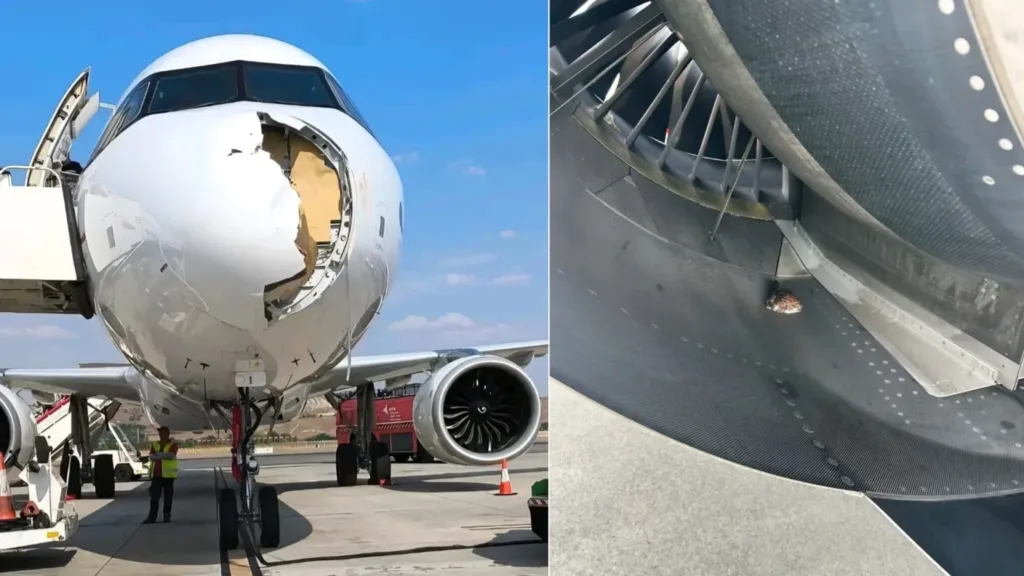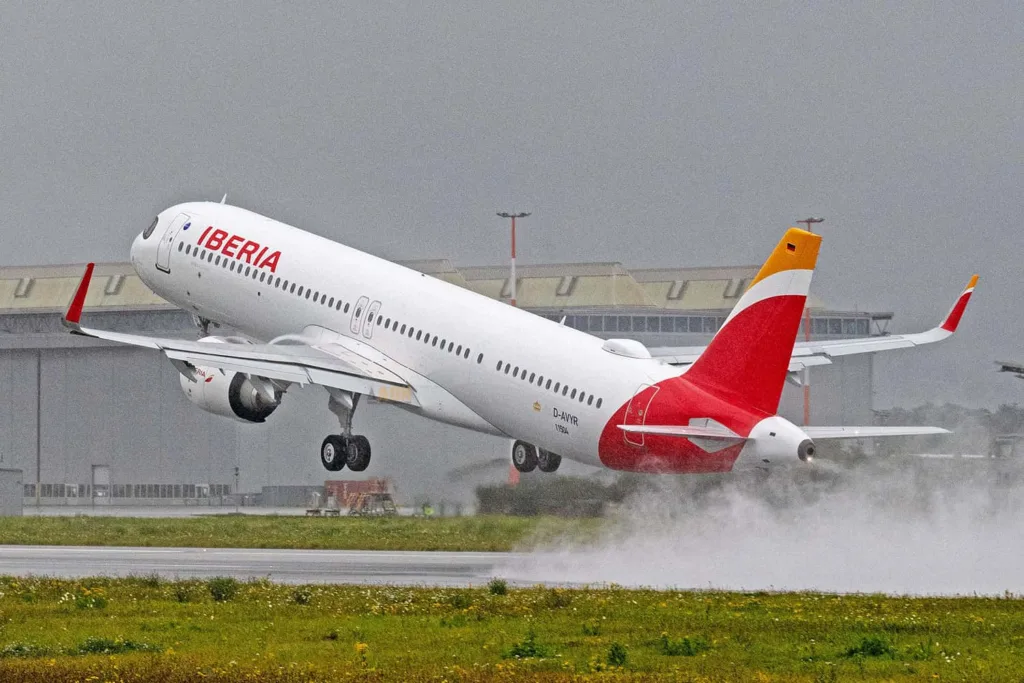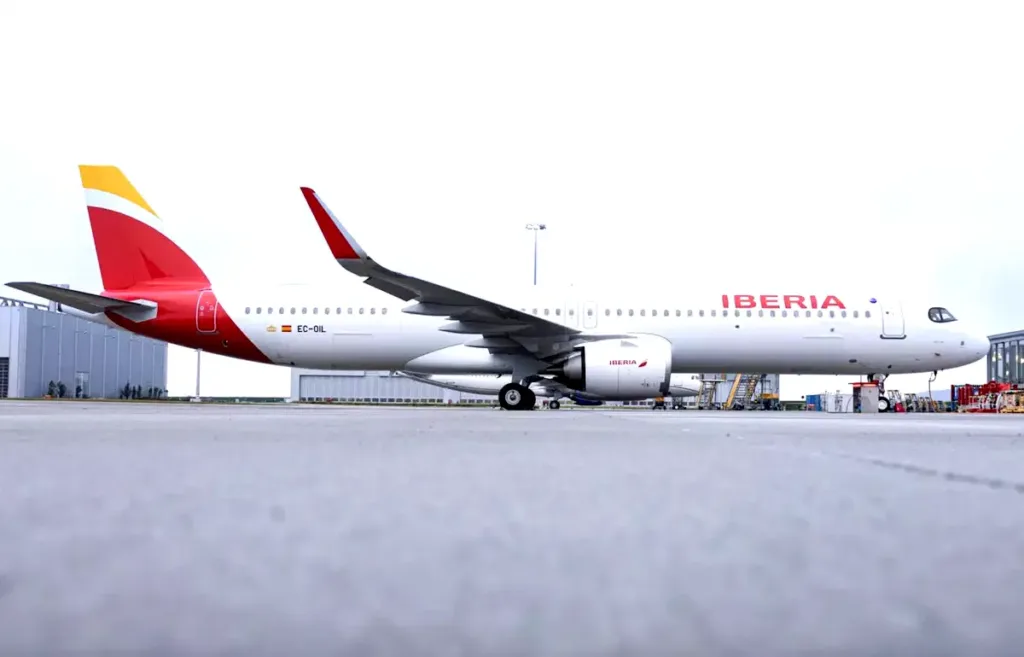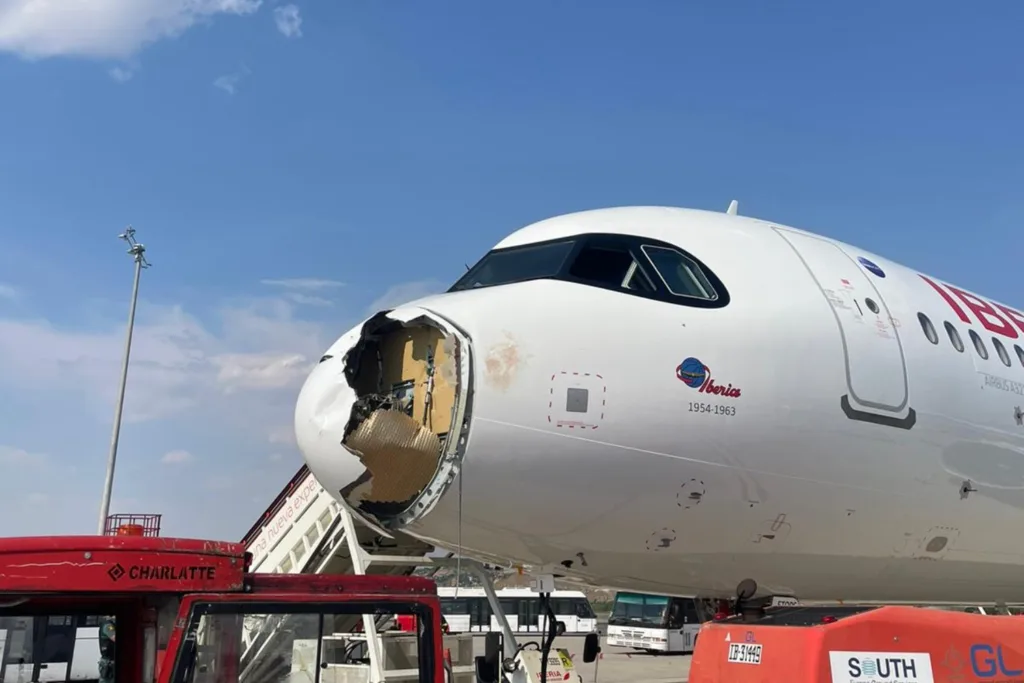A brand-new Iberia Airbus A321XLR was severely damaged following a bird strike shortly after takeoff from Madrid. The routine Iberia flight from Madrid to Paris Orly turned into an emergency when the carrier’s new Airbus A321XLR was struck by a bird only a few minutes into takeoff.
The Airbus A321XLR with registration EC-OOJ was operating flight IB579 from Madrid to Paris Orly on August 1. Flight IB579 departed from runway 36L of Madrid–Barajas Adolfo Suárez Airport, however it was forced to halt its climb at about 7,000 feet after it hit multiple birds.
While bird strikes are not uncommon on commercial flights, this incident is significant considering the aircraft involved, a brand-new Airbus A321XLR. Shortly after takeoff, the A321XLR returned to Madrid, safely landing without reporting any crew or passenger injuries.

Iberia A321XLR Damaged
Following the bird strike, the crew quickly declared an emergency and initiated a return route to Madrid. Maintenance personnel later verified that the aircraft sustained significant damage, including to the engines and fuselage. Preliminary reports, subject to full inspection reports, state that the damage is extensive enough to ground the aircraft for an extended period.
The Airbus A321XLR (Extra Long Range) is not only a cornerstone of Iberia’s long- and medium-haul future strategy but also a new generation of narrowbody efficiency. The fact that the airplane will be grounded for several weeks is a setback for the carrier, especially with the approaching peak tourist season.
Iberia made no public statement about whether it will return the plane to Airbus to have structural work performed or be fixed internally. In the meantime, replacement planes will cover scheduled A321XLR flights, which may impact capacity and frequency on impacted routes.

Why This Incident Matters?
The timing of the accident is most intriguing. Iberia had only recently taken delivery of the aircraft, and flight IB579 was one of its first commercial flights. The A321XLR will replace widebodies on thinner long-haul routes and link transatlantic markets non-stop from Madrid at a reduced operating cost.
Iberia’s A321XLR order is just one part of a wider International Airlines Group (IAG) strategy and reflects the airline’s commitment to the modernization of its fleet.
Moreover, grounding such a new plane not only ruins short-term timetables but might also delay the introduction of routes planned around the plane’s outstanding range and fuel efficiency. The plane has been removed from service and is undergoing rigorous technical investigation.
Iberia and Airbus engineers are cooperating to establish the magnitude of the damage. Based on spare part availability and the level of repairs needed, the aircraft can be out of service for several weeks or even months.

Bird Strikes and Operational Impact
Bird strikes are a widely recognized operational risk, especially during takeoff and landing. Commercial aircraft are designed to withstand minor strikes. However, the larger impacts, especially involving with engine ingestion can pose serious safety and mechanical risks.
This incident further highlights the operational challenges due to the environmental conditions beyond anyone’s control.
While nobody was injured and the crew carried out the emergency procedure in a professional fashion, the bird strike crash on Iberia’s new Airbus A321XLR is a significant operational and financial blow.
Please join our Telegram Channel for the latest aviation updates.

